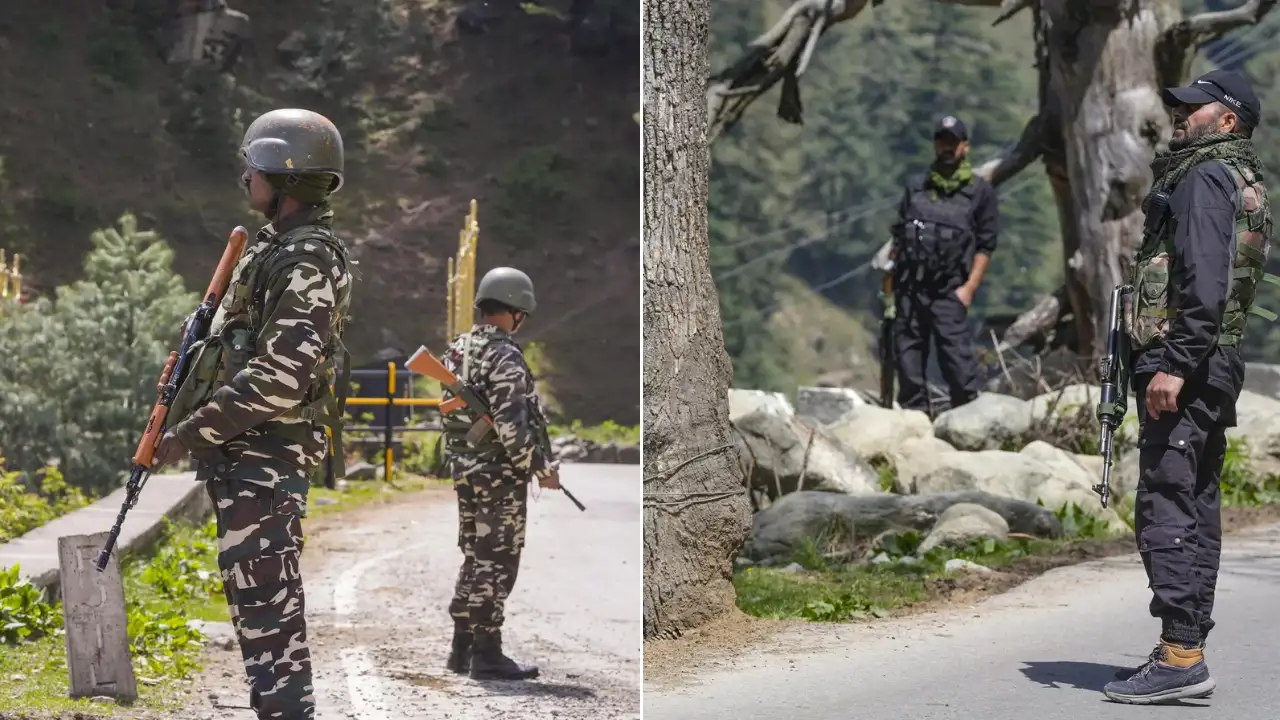As India and Pakistan grapple with heightened tensions following the deadly terror attack in Jammu and Kashmir’s Pahalgam Attack, two influential Middle Eastern powers — Saudi Arabia and Iran — have moved swiftly to encourage peace and prevent any military escalation.
Saudi Arabia’s Foreign Minister, Prince Faisal bin Farhan Al Saud, personally reached out to top officials in New Delhi and Islamabad, urging restraint and dialogue. Meanwhile, Iran’s Foreign Minister, Seyed Abbas Araghchi, publicly extended an offer to mediate between the two South Asian neighbors, calling for calm and greater understanding during this volatile period.
The diplomatic outreach highlights growing international concern over the fragile peace in the region, especially after the recent violence in Kashmir that claimed over two dozen lives.
Iran Emphasizes Brotherhood and Peace
Iran, a country with strong historical and cultural ties to both India and Pakistan, quickly positioned itself as a potential peace-broker. Speaking on Friday, Iran’s Foreign Minister emphasized the need for dialogue and unity, quoting Persian poet Saadi to underline the interconnectedness of humanity.
“Tehran stands ready to assist our brotherly neighbors, India and Pakistan, in forging a greater understanding,” Araghchi said. His statement appealed to shared cultural values and mutual interests, signaling Iran’s desire to play a constructive role amid the crisis.

In addition to his public offer, Araghchi also spoke directly with Pakistan’s Foreign Minister and Deputy Prime Minister, Ishaq Dar. According to diplomatic sources, Dar updated Araghchi on Pakistan’s stance and recent developments following India’s allegations that cross-border elements were involved in the Pahalgam attack.
Pakistan welcomed Iran’s offer warmly, indicating that Islamabad remains open to regional diplomatic initiatives that promote stability and reduce tensions.
Saudi Arabia’s Quiet Diplomatic Push
While Iran made its offer public, Saudi Arabia opted for a quieter but equally serious approach. Prince Faisal bin Farhan personally called India’s External Affairs Minister, S. Jaishankar, and Pakistan’s Foreign Minister, Ishaq Dar, to discuss the situation.
Jaishankar acknowledged the conversation in a brief statement, mentioning that they discussed the terrorist attack in Pahalgam and the “cross-border linkages” connected to it. Although New Delhi has not formally accused Pakistan, Indian officials have hinted strongly at foreign involvement.
On the other side, Pakistan issued a statement saying that Dar informed Prince Faisal about Pakistan’s National Security Committee meetings and their conclusions, which rejected India’s allegations and warned against any “escalatory moves.”
Both sides agreed to continue diplomatic consultations, with Saudi Arabia offering its support for peace and security in South Asia.
A History of Mediation Efforts
This is not the first time that external powers have tried to defuse tensions between India and Pakistan. After the deadly Pulwama attack in 2019, which pushed the two nations to the brink of war, Saudi Arabia and the United Arab Emirates played crucial backchannel roles in calming the situation.
Sources close to diplomatic circles recall that Saudi Arabia’s mediation then involved high-level interventions to persuade both sides to step back from the edge. Although these efforts were rarely publicized, they were instrumental in reducing the risk of full-scale conflict.
Today, the echoes of 2019 are hard to miss. With the region once again on edge, trusted international players are moving swiftly to repeat history — this time perhaps with even greater urgency, given the unstable global environment.
India and Pakistan Hold Firm
Despite external efforts, both India and Pakistan are maintaining strong public positions.
India has condemned the Pahalgam attack in the harshest terms, vowing to hold those responsible accountable. Though New Delhi has not named Pakistan officially, Indian media reports and statements by political leaders strongly suggest that India blames cross-border terror groups.
Pakistan, on the other hand, has categorically denied any involvement and criticized India for “baseless allegations.” Islamabad has warned that any misadventure by India would be met with a “strong and immediate” response.
Given the entrenched positions on both sides, the road to de-escalation will not be easy. Yet, the active involvement of major players like Saudi Arabia and Iran could open critical diplomatic backchannels at a time when dialogue seems otherwise impossible.
Why the World Is Watching
The stakes are high. Both India and Pakistan are nuclear-armed nations, and any miscalculation could have devastating consequences not only for South Asia but for global security.
In a world already dealing with multiple crises, including conflicts in Ukraine and the Middle East, a new flashpoint between India and Pakistan would strain international diplomatic resources even further.
That’s why the efforts of countries like Saudi Arabia and Iran are being closely watched by global powers, who are also urging both New Delhi and Islamabad to exercise maximum restraint.
As the situation unfolds, it remains to be seen whether diplomacy will triumph over hostility. But one thing is clear: the world cannot afford another conflict between India and Pakistan.
China and Qatar Celebrate Cultural Unity Through Calligraphy in Doha



